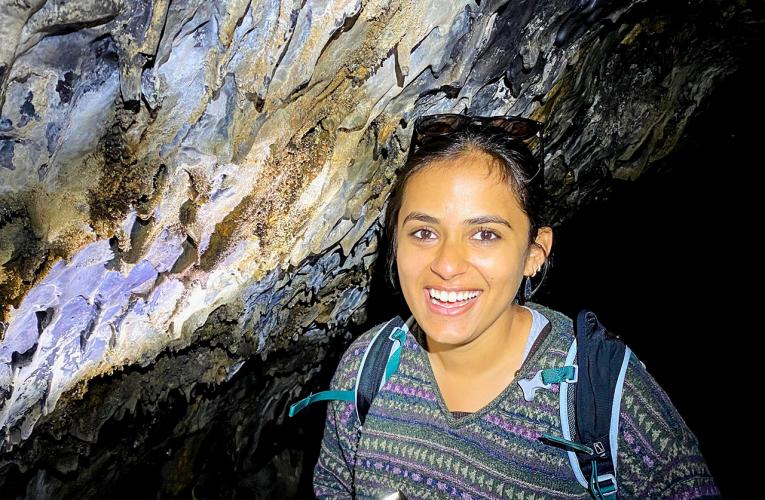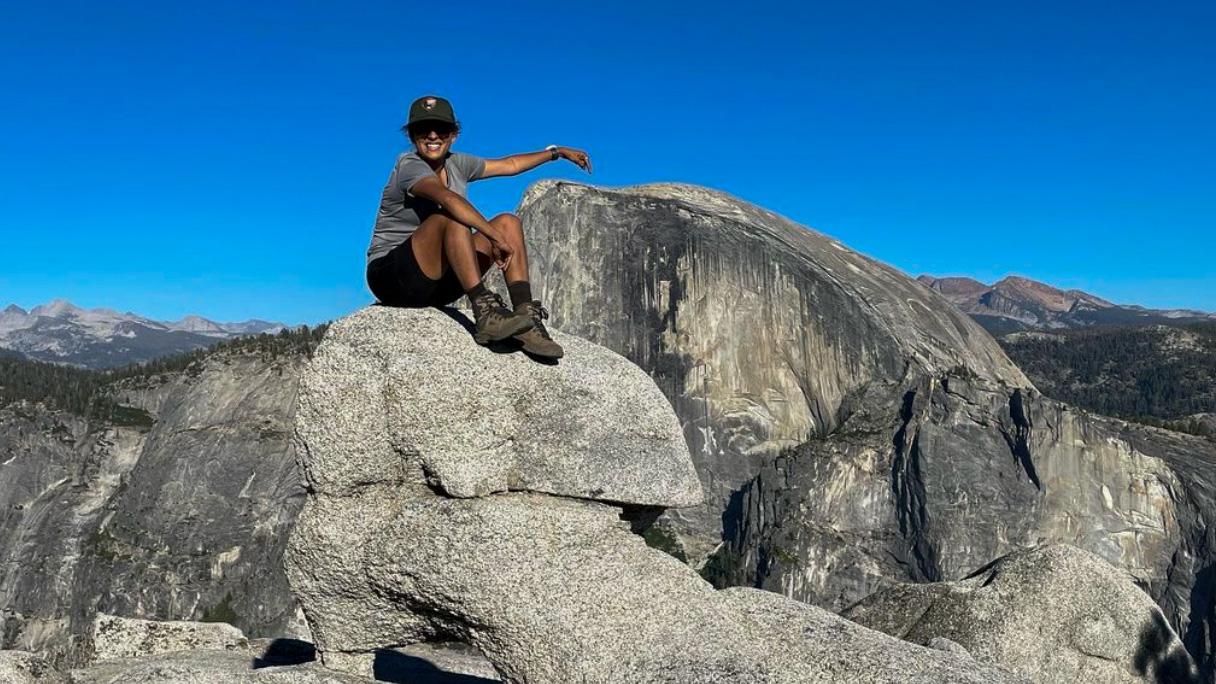Anya Gupta, an Earth and Climate Sciences (ECS) and Environmental Sciences (ENV) double major, recently shared insights into why she chose to major in ECS and ENV, what she has learned, her favorite experience and advice for students considering the major or ECS or ENV coursework.
Why did you choose to major in EARTH AND CLIMATE SCIENCES AND ENVIRONMENTAL SCIENCES?
"I originally came to Duke intending to double major in biology and environmental science. After taking EOS [now ECS] 101 my freshman fall, I realized that the part of environmental science that was the most fascinating to me was that concerning physical and abiotic processes that give rise to natural resources, vast landscapes and unique fossils.
I remember sitting in a 101 lecture and seeing an unlabeled roche moutonée (glacially altered rock) on a slide deck and recognizing it as Lembert Dome up in Yosemite's Tuolumne Meadows. I went up to Dr. Emily Klein after class and told her that I had climbed it the previous summer! I was so excited to learn that vocabulary existed to describe landforms I had always admired.
The following semester, I took Alan Boudreau's Volcanology of Hawaii. I loved applying what I had learned in class directly to things we saw in the field. Everything from mineral identification, naming features in rock outcrops, and analyzing different types of volcanic ejecta was incredibly meaningful to me.
After a gap year spent cave guiding in Kentucky and working with the National Park Service in Oregon, I realized that my academic passions lay in a subject that would 1) require time outside and 2) deepen my understanding of the natural world and how it came to be. And so, I dropped the bio major and added ECS!"
What have you learned from the ECS major and its courses?
"ECS at Duke has literally changed the way in which I see the world. After taking ECS 102: Dynamic Oceans, I recognized a radiolarian chert outcrop when hiking near my house (something I had never noticed before!). After ECS 204: Evolving Earth and Life, I could easily tell what minerals made up Yosemite's famous Half Dome granodiorite and point out differences between different igneous suites in the park. ECS 402: Volcanology taught me how to keep a field notebook, record observations, and build upon fundamental geologic concepts like the law of lateral continuity to understand what was happening and why. Paul Baker's paleoclimate class introduced me to the concept that rocks can not only tell us about past depositional environments, but also climate histories and gene flows of organisms.
I have found myself to be more engaged with my physical environment, while also thinking more deeply about the major processes that have shaped the earth and continue to do so."
What's been your favorite experience as an ecs/env double major?
"It's not hard to pick a favorite when you take a 10-day field trip to Maui and Hawaii's Big Island spring break of your freshman year...Alan Boudreau's Volcanology of Hawaii class made me want to study geology. I think it was camping on the flank of Haleakalā and then waking up to see a summit sunrise over dozens of small cinder cones (and then mapping their flows) that sold me.
Duke also has an incredible rock and mineral collection, and I have also really enjoyed getting to look at those through ECS 201: Earth Materials."
What advice would you give a student considering majoring in EARTH AND CLIMATE SCIENCES AND/OR ENVIRONMENTAL SCIENCES?
"Take all the field classes you can and ask lots of questions!"



